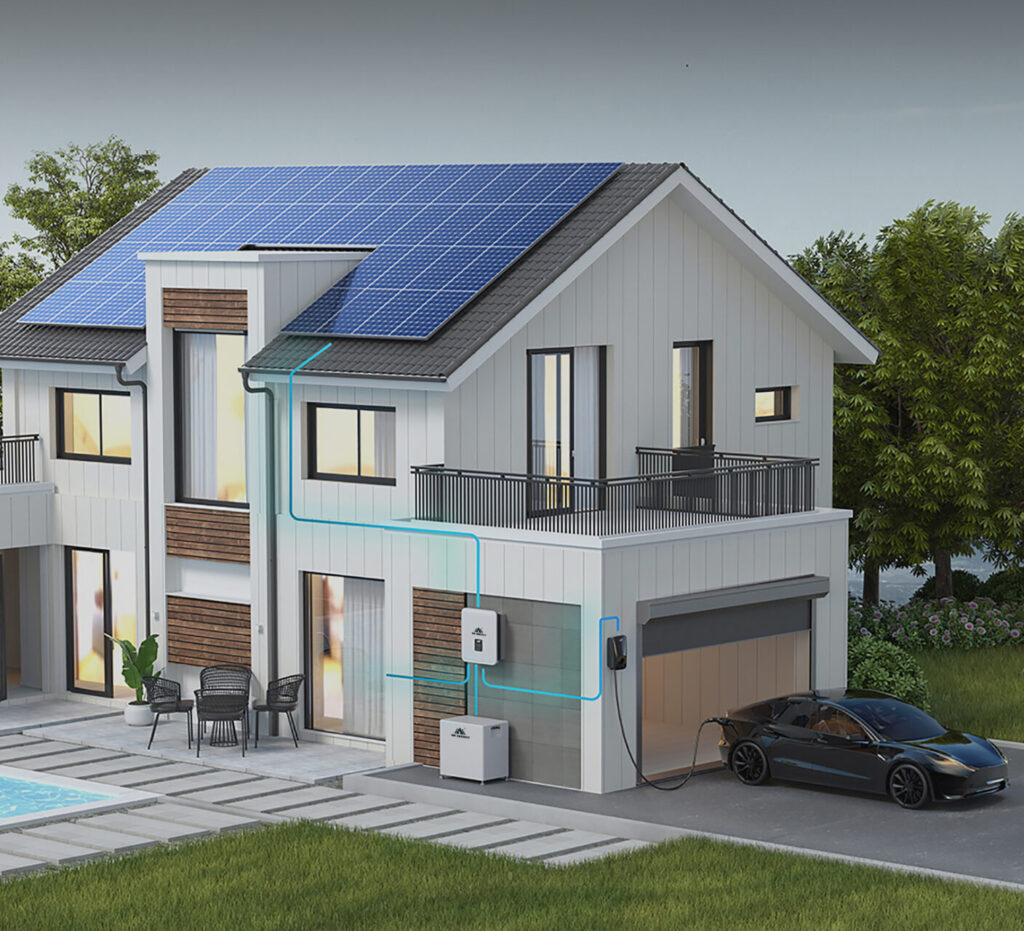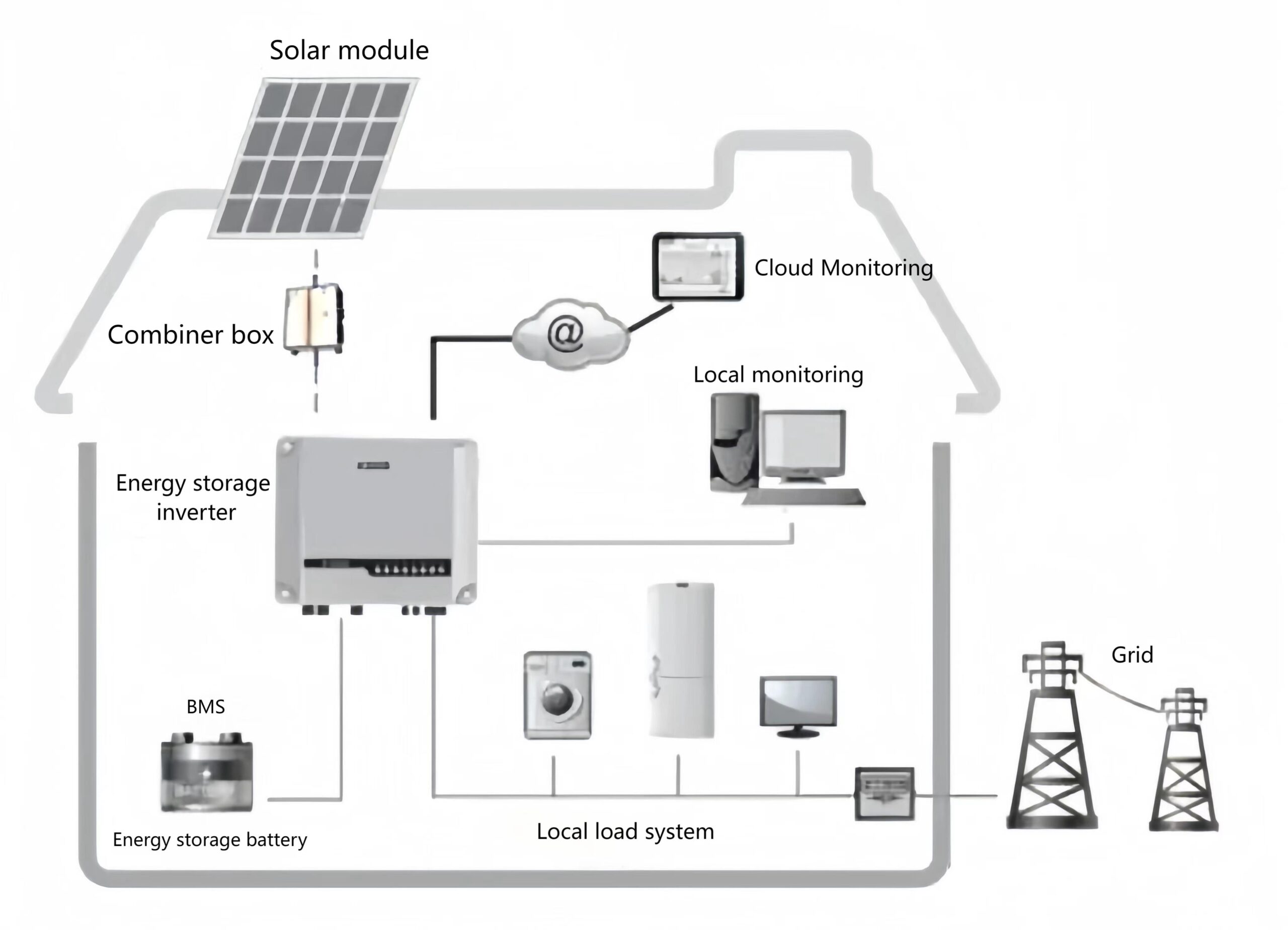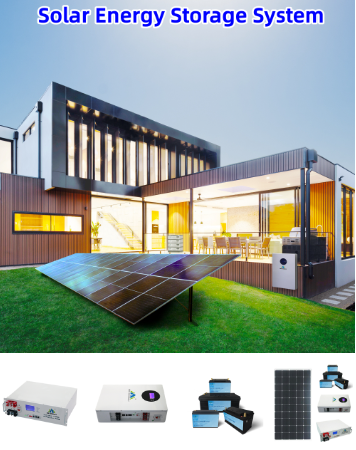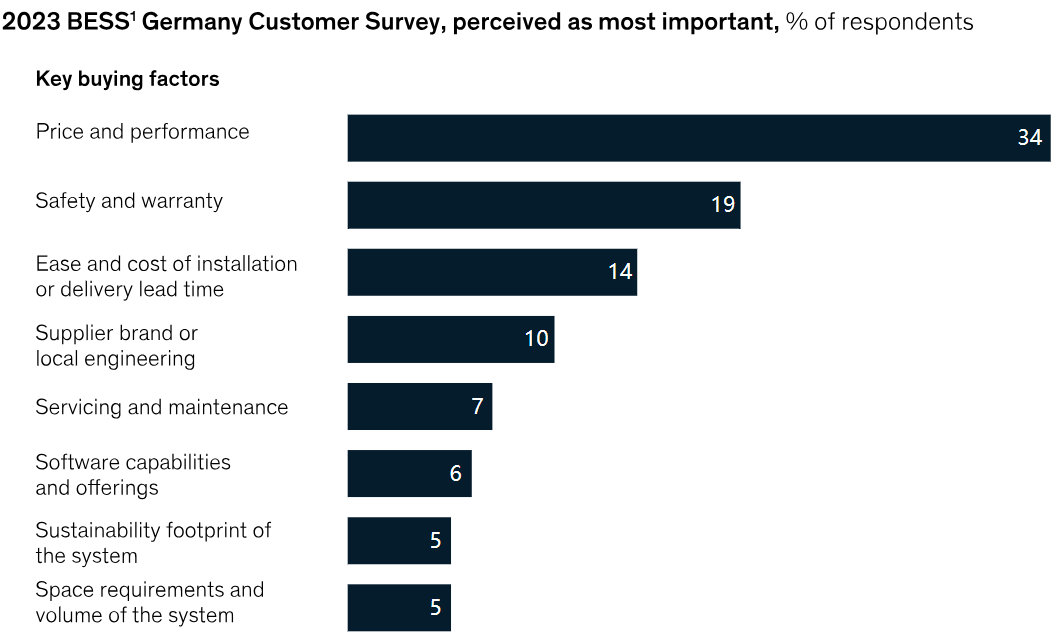In an era where renewable energy is becoming increasingly prevalent, home energy storage solutions are emerging as a vital component for managing and utilizing green energy effectively.
Home energy storage products refer to energy storage systems used in home user scenarios. Usually consist of battery packs, battery management systems (BMS), energy storage converters (PCS) and energy management systems (EMS), of which energy storage batteries and converters are the core links with high value.
They are usually installed in combination with household photovoltaic systems to provide power to home users. The installed capacity of this type of product is usually above 10kWh. Compared with the power generation side/grid side/industrial and commercial energy storage, which is usually above MWh, the single unit scale is much smaller.
Choosing the right energy storage products can reduce dependence on the grid and save energy bills. Here’s what you should consider before purchasing a home energy storage product.
Energy Needs and Usage Patterns
Understand your household’s energy consumption patterns and needs. Evaluate how much energy you typically use, during peak and off-peak hours, and how much renewable energy your system generates. This information will guide you in choosing the right size and capacity of the energy storage solution.
Capacity and Compatibility
Select an energy storage solution with the appropriate capacity to meet your energy storage needs. Ensure that the storage system is compatible with your existing renewable energy setup, such as solar panels or wind turbines, and can integrate smoothly with your home’s electrical system.
Efficiency and Performance
Efficiency is crucial when it comes to energy storage systems. Look for products with high round-trip efficiency, which indicates how much of the stored energy can be retrieved and used effectively. Additionally, consider the system’s performance in various weather conditions and its ability to maintain consistent power output.
Reliability and Warranty
Invest in a reliable energy storage system from a reputable manufacturer. Check the warranty terms and duration to ensure that you have sufficient protection against defects or technical issues. A longer warranty period often indicates a more reliable product.
Size and Installation Requirements
Consider the physical dimensions of the energy storage product and whether it will fit comfortably in your designated installation area. Assess whether the system requires specialized installation procedures or additional infrastructure modifications.
Cost and Value for Money
Determine your budget for the energy storage system and evaluate the cost-effectiveness of different products. While it’s important not to compromise on quality, choose a solution that offers good value for money by balancing price, efficiency, and features.
Smart Features and Connectivity
Opt for an energy storage product with smart features that enable remote monitoring and control. These features can help you optimize energy usage, track consumption patterns, and adjust settings based on real-time data.
Environmental Impact
Consider the environmental impact of the energy storage product, including its materials, manufacturing process, and end-of-life disposal. Choose a product that minimizes environmental footprint and supports sustainable energy practices.
Regulatory Compliance and Incentives
Ensure that the energy storage product complies with local regulations and standards. Additionally, research any government incentives or tax credits available for installing energy storage systems, which can significantly offset the initial investment.
Investing in a home energy storage solution is a significant step towards a sustainable and energy-efficient household. By considering factors such as energy needs, capacity, efficiency, reliability, size, cost, smart features, environmental impact, and regulatory compliance, you can select the most suitable product for your home and enjoy the benefits of renewable energy with greater control and cost-effectiveness.




